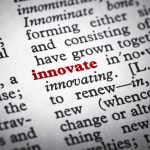 Advocates for changing the patent venue rules, which dictate where patent owners can sue alleged infringers, have been arguing that their remedy will cure the supposed disease of abusive “trolls” filing suit after suit in the Eastern District of Texas. This is certainly true, but it’s only true in the sense that cyanide cures the common cold. Read more
Advocates for changing the patent venue rules, which dictate where patent owners can sue alleged infringers, have been arguing that their remedy will cure the supposed disease of abusive “trolls” filing suit after suit in the Eastern District of Texas. This is certainly true, but it’s only true in the sense that cyanide cures the common cold. Read more
Category: Legislation
No Consensus That Broad Patent ‘Reform’ is Necessary or Helpful
Here’s a brief excerpt of an op-ed by Adam Mossoff & Devlin Hartline that was published in The Hill:
Two recent op-eds published in The Hill argue that broad patent legislation—misleadingly labeled “reform”—is needed because the U.S. patent system is fundamentally broken. Read more
How Patents Help Startups Grow, Innovate, and Succeed
Many academic studies of the patent system focus on the negative, extrapolating from anecdotes about a few bad actors to make the case that our patent system is broken and to bolster cries for legislation weakening patent rights. Precious few studies focus on the countless honest and hardworking patent owners whose inventive labors benefit us all. Read more
Principles and Priorities to Guide Congress’s Ongoing Copyright Review
Last week, CPIP published a new white paper, Copyright Principles and Priorities to Foster a Creative Digital Marketplace, by Sandra Aistars, Mark Schultz, and myself, which draws from the testimonies and scholarly writings of CPIP Senior Scholars in order to guide Congress as it continues its comprehensive review of the Copyright Act. Read more
Repetition of Junk Science & Epithets Does Not Make Them True
Here’s a brief excerpt of a post by Adam Mossoff that was published on IPWatchdog.
In their recent submission to the Washington Post’s series on so-called “patent reform” and “patent trolls,” James Bessen and Michael Meurer repeat the same junk science claims we’ve all heard many times before. Read more
Debunking Myths About the Proposed Federal Trade Secrets Act
By Mark Schultz
Today, CPIP is proud to release a paper authored by the nation’s preeminent expert on trade secret law, James Pooley. Mr. Pooley’s paper explains the arguments in favor of the Defend Trade Secrets Act of 2015 (“DTSA”), which is currently being considered by Congress. Read more
Will Increasing the Term of Data Exclusivity for Biologic Drugs in the TPP Reduce Access to Medicines?
The following guest post comes from Philip Stevens, Director of the Geneva Network, a research and advocacy organization working on international health, trade, and intellectual property issues. The original research note can be found here.
By Philip Stevens
 In the Trans-Pacific Partnership (TPP) negotiations, the U.S. Read more
In the Trans-Pacific Partnership (TPP) negotiations, the U.S. Read more
Making Copyright Work for Creative Upstarts
The following post is by CPIP Research Associate Matt McIntee, a rising 2L at George Mason University School of Law. McIntee reviews a paper from CPIP’s 2014 Fall Conference, Common Ground: How Intellectual Property Unites Creators and Innovators.
By Matt McIntee
 In Making Copyright Work for Creative Upstarts, recently published in the George Mason Law Review, Professor Sean Pager demonstrates how the current copyright system can be improved to better support creative upstarts. Read more
In Making Copyright Work for Creative Upstarts, recently published in the George Mason Law Review, Professor Sean Pager demonstrates how the current copyright system can be improved to better support creative upstarts. Read more
It’s Time to Say “No” to Junk Science in the Patent Policy Debates
Last March, forty economists and law professors submitted a letter to Congress expressing “deep concerns with the many flawed, unreliable, or incomplete studies about the American patent system that have been provided to members of Congress.” These concerns were confirmed again last week when Unified Patents released a report on patent litigation with the same kind of “highly exaggerated claims regarding patent trolls” that the professors were concerned about. Read more
How Rhetorical Epithets Have Led the FTC Astray in its Study of Patent Licensing Firms
We’ve all heard the narrative about patent licensing firms, often referred to pejoratively as “patent trolls.” These patent owners, who choose to license their innovations rather than build them, are the supposed poster-children of a “broken” patent system. It’s as if commercializing one’s property, just like a landlord leases his land for another to use, is suddenly a bad thing. Read more